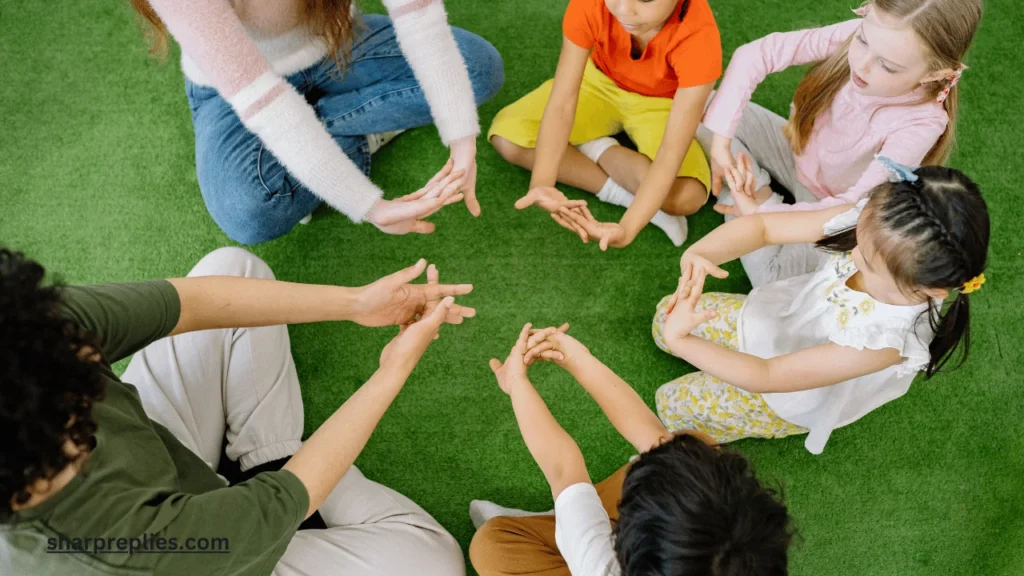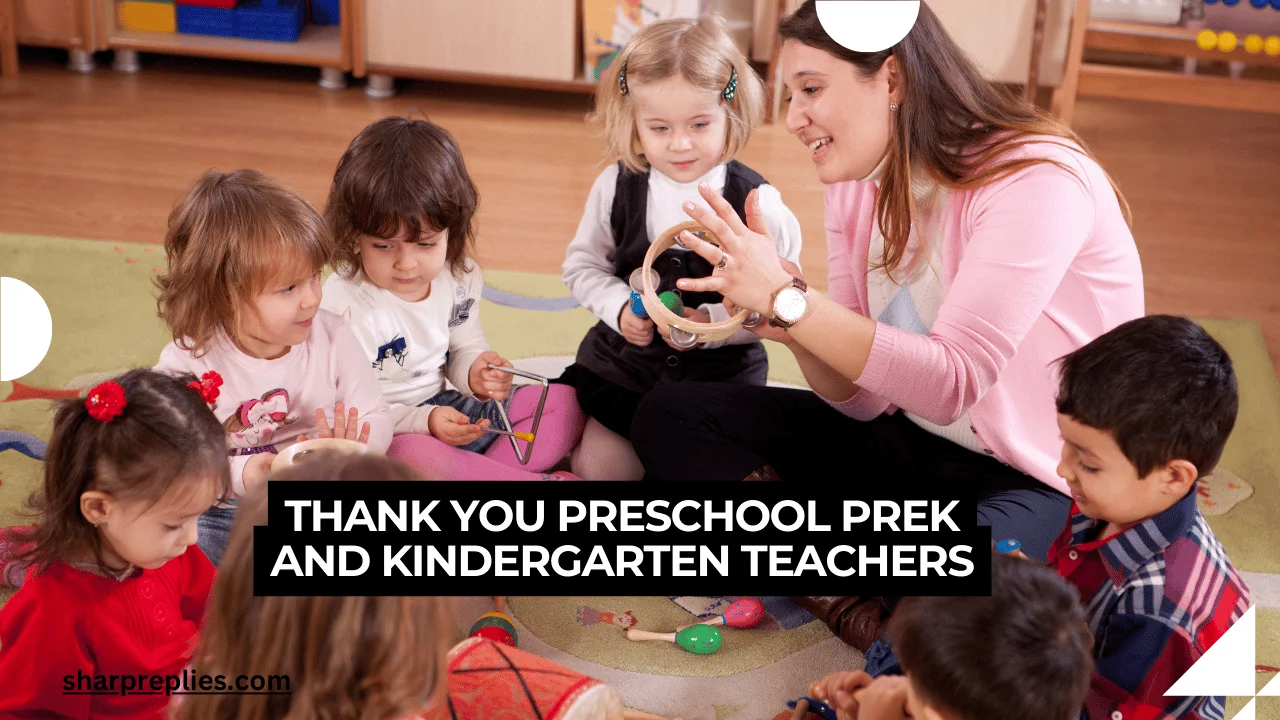Teachers are often regarded as the backbone of education, but when it comes to the early years—preschool, pre-K, and kindergarten—the impact of these educators cannot be overstated. They are the first guiding hands that shape the minds and spirits of young children.
Thanking these teachers goes beyond acknowledging their hard work; it’s about recognizing the immense responsibility and passion they bring to nurturing the next generation. These educators don’t just teach; they create an environment where children feel safe, loved, and eager to learn.
In this article, we’ll explore the significance of expressing gratitude to preschool, pre-K, and kindergarten teachers, the vital role they play in early childhood development, and the various ways we can show our appreciation for their tireless efforts.
Whether you’re a parent, colleague, or school administrator, this guide will offer insights into meaningful ways to say “thank you” and why it’s essential to do so.
Contents
- 1 The Importance of Preschool, Pre-K, and Kindergarten Teachers
- 2 Why Gratitude Matters for Preschool Teachers
- 3 Different Ways to Show Appreciation
- 4 The Ripple Effect of Gratitude on Teachers and Students
- 5 Why Teachers Deserve Our Gratitude Year-Round
- 6 Conclusion
- 7 FAQ’s
- 7.0.1 Why is it important to thank preschool teachers?
- 7.0.2 What are some meaningful ways to show appreciation to preschool teachers?
- 7.0.3 How does showing gratitude impact the teacher’s motivation?
- 7.0.4 Is it necessary to express gratitude only during Teacher Appreciation Week?
- 7.0.5 Can students also express gratitude to their teachers?
- 7.0.6 How can parents help their children appreciate teachers?
The Importance of Preschool, Pre-K, and Kindergarten Teachers
Early childhood educators lay the foundation for future learning, and their influence can shape a child’s emotional and intellectual growth for years to come.
These teachers introduce children to the joys of learning, instilling curiosity, social skills, and confidence. They nurture creativity and help children develop essential skills, such as empathy, teamwork, and problem-solving.
Research has shown that children who experience high-quality early education perform better academically and socially later in life. Preschool and kindergarten teachers are, in essence, architects of a child’s early education, influencing not only their academic skills but also their character development.
A simple “thank you” for their hard work can help affirm the incredible difference they make.
Why Gratitude Matters for Preschool Teachers
Teachers in these early years often face challenges that are unique to their profession. Managing a group of energetic young children while fostering a sense of emotional security and guiding them through the fundamental stages of learning is no small task.
Expressing gratitude for their dedication is more than just polite; it’s a recognition of their emotional labor.
A “thank you” can go a long way in boosting teacher morale. When teachers feel appreciated, they are more likely to feel motivated, which ultimately impacts the quality of the education they provide.
The positive reinforcement of gratitude also helps foster a supportive work environment, where teachers feel respected and valued.
Different Ways to Show Appreciation
Saying “thank you” can take many forms, and it’s important to be personal and thoughtful when expressing your gratitude. Here are a few meaningful ways to show appreciation for preschool and kindergarten teachers:
- Handwritten notes: A heartfelt letter from a parent or child can be incredibly touching. Share specific examples of how the teacher’s efforts have impacted the child, such as teaching them a new skill or encouraging them during a difficult moment.
- Small gifts: Thoughtful gifts, like a personalized mug, a plant, or a handmade item, can go a long way in showing your appreciation. Be sure to choose something that reflects the teacher’s personality or needs.
- Classroom parties or events: Organizing a small event where parents and children come together to celebrate the teacher’s hard work can be a wonderful gesture. It not only expresses gratitude but also builds a stronger school community.
- Verbal recognition: Don’t underestimate the power of a simple thank you in person. Taking a moment to express your appreciation for their work can make a big difference.
These gestures are tangible expressions of gratitude that show teachers they are valued beyond their role in the classroom.
The Ripple Effect of Gratitude on Teachers and Students
When gratitude is expressed, it creates a positive ripple effect that reaches beyond the teacher. Teachers who feel appreciated are more likely to continue giving their best to the students.
This, in turn, leads to a more engaged and motivated classroom, where students thrive. Children benefit from this positive energy, as it fosters a sense of well-being, confidence, and security.
Furthermore, when children see their parents or caregivers expressing gratitude toward their teachers, it teaches them about respect and the importance of valuing others. It reinforces the lesson that appreciation and kindness are essential qualities to cultivate in life.
This act of gratitude can become a teaching moment in itself, helping children learn empathy and the importance of acknowledging others’ efforts.
Why Teachers Deserve Our Gratitude Year-Round

While the end of the school year or special occasions like Teacher Appreciation Week provide natural opportunities for expressing gratitude, teachers deserve to be appreciated year-round.
Their role is ongoing, and the challenges they face don’t end with a holiday or celebratory event. Small, everyday acts of recognition—whether it’s a quick note or a simple verbal thanks—are incredibly powerful.
Recognizing teachers consistently encourages a culture of gratitude and positivity that benefits everyone involved. In turn, it helps ensure that educators feel continually supported and motivated, which ultimately benefits the children they teach.
Teachers shape the future, and their work should be acknowledged not just occasionally, but regularly.
Conclusion
Preschool, pre-K, and kindergarten teachers play an invaluable role in shaping young minds, fostering emotional growth, and creating a foundation for lifelong learning.
Expressing gratitude for their efforts is not just a one-time act, but an ongoing practice that has lasting effects. Whether through verbal praise, handwritten notes, or small gestures, showing appreciation helps to reaffirm the importance of their work. In turn, it creates a more positive, supportive learning environment for both teachers and students alike.
So, let’s continue to show our gratitude—because these teachers are shaping the future, one child at a time.
FAQ’s
Why is it important to thank preschool teachers?
Preschool teachers play a critical role in the emotional and intellectual development of children. Thanking them acknowledges their hard work and the positive impact they have on the lives of the children they teach.
What are some meaningful ways to show appreciation to preschool teachers?
Some meaningful ways include handwritten notes, small thoughtful gifts, organizing classroom events, or simply expressing verbal thanks. Personalizing the message makes it more heartfelt.
How does showing gratitude impact the teacher’s motivation?
When teachers feel appreciated, it boosts their morale and motivation, encouraging them to continue their work with passion and dedication. This positively influences their teaching and the classroom environment.
Is it necessary to express gratitude only during Teacher Appreciation Week?
No, teachers should be appreciated year-round. Regular gestures of thanks, such as a kind note or a verbal compliment, help maintain a positive environment and show consistent support for their work.
Can students also express gratitude to their teachers?
Absolutely! Children can express gratitude through drawings, small gifts, or simply saying “thank you” to their teachers. It teaches them the value of appreciation and kindness.
How can parents help their children appreciate teachers?
Parents can model gratitude by thanking teachers in front of their children and encouraging them to express their thanks as well. Discussing the teacher’s positive qualities helps children recognize the importance of the teacher’s role.








